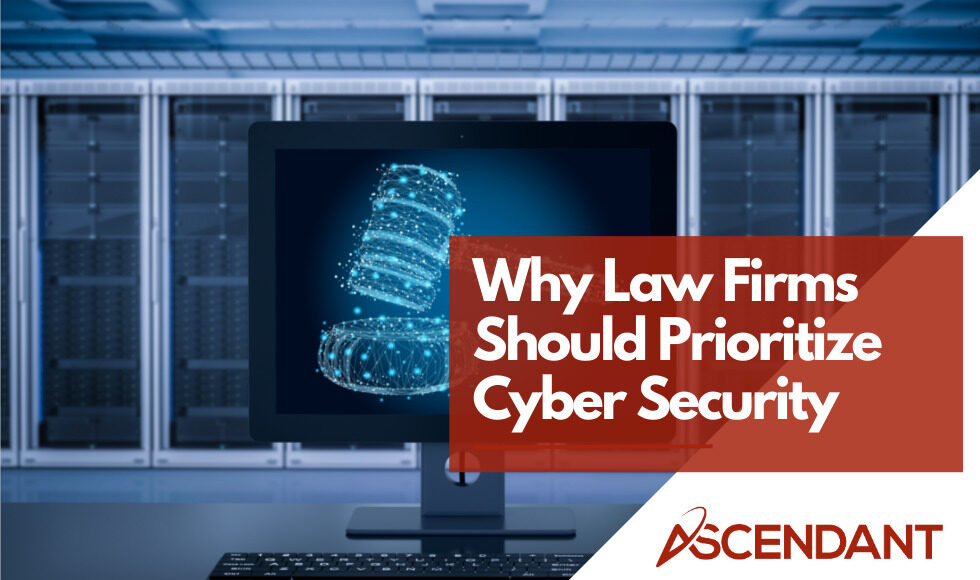Why is cybersecurity important to law firms?
Client Confidentiality
Client confidentiality is paramount for law firms, as they handle many sensitive client information, ranging from personal details to privileged communications and case-related documents. Having robust cybersecurity for law firms is vital for protecting this sensitive data and maintaining clients’ trust in their legal representatives. Law firms have an ethical and legal duty to ensure that their client’s information remains confidential and secure from unauthorized access, tampering, or theft. Cyber threats are constantly evolving, and implementing robust cybersecurity measures demonstrates a law firm’s commitment to protecting client data and helps build and maintain the trust essential for successful attorney-client relationships.
Compliance With Regulation
Compliance with regulations and robust cyber security practices have become indispensable for law firms seeking to safeguard their clients, as well as their own reputation. With myriad legal regulations such as the General Data Protection Regulation (GDPR) in Europe, the Health Insurance Portability and Accountability Act (HIPAA) in the United States, and the Personal Information Protection and Electronic Documents Act (PIPEDA) in Canada, law firms find themselves accountable both for protecting sensitive client information and abiding by strict requirements.
Non-compliance with these regulations could lead to hefty fines, litigation, and a tarnished reputation. In order to mitigate risk and demonstrate their commitment to clients’ confidentiality, law firms must diligently assess and prioritize cyber security measures, embracing state-of-the-art technologies such as multi-factor authentication, intrusion detection and prevention systems, and employing encryption where possible.
Fostering a culture of cyber security awareness amongst team members and ongoing training are essential components of a comprehensive, layered defense strategy against the increasingly sophisticated cyber attacks faced by law firms.
Business Continuity
As custodians of highly sensitive and confidential data, law firms have become an increasingly attractive target for cybercriminals, with the American Bar Association reporting that 29% of firms experienced a security breach in 2020. This calls for a comprehensive and proactive approach to risk mitigation, involving continuous monitoring, regular system updates, robust data backup and recovery strategies, and comprehensive employee training. By implementing these measures, law firms can not only minimize their vulnerability to a cyber attack but also ensure that they retain the indispensable trust of their clients and maintain a robust reputation in the highly competitive legal sector.
Competitive Advantage
Investing in robust cybersecurity measures can provide a significant competitive advantage for law firms. As clients become increasingly aware of the risks associated with data breaches and cyber threats, they are more likely to choose a law firm that demonstrates a strong commitment to protecting their sensitive information.
By implementing state-of-the-art cybersecurity technologies and best practices, a law firm can differentiate itself from competitors and position itself as a trustworthy partner for clients who value data security and privacy.
In essence, a proactive investment in cybersecurity IT services for law firms reputation but also serves as a key selling point that can attract and retain clients, ultimately driving business success.
Insider Threats
Insider threats pose a significant risk to law firms, making it essential to invest in comprehensive cybersecurity measures that address both external and internal risks. Insider threats can originate from various sources, such as disgruntled employees, negligent staff members, or even third-party contractors with access to sensitive information. These threats can manifest as a data breach, unauthorized access, or intentional sabotage, potentially causing severe damage to a law firm’s reputation, client relationships, and financial stability.
By investing in advanced cybersecurity measures that include user access controls, data loss prevention tools, and ongoing employee training programs, many law firms can effectively mitigate the risk of insider threats. These proactive measures foster a culture of security awareness within the organization and enable firms to identify and respond to potential threats swiftly, ensuring the integrity and confidential information and reinforcing the firm’s commitment to upholding the highest standards of information security.
Vendor & Third Party Risk Management
External relationships, while beneficial in many ways, can also introduce potential vulnerabilities into a law firm’s information security infrastructure. Therefore, it is imperative for law firms to invest in robust cybersecurity measures that encompass vendor and third-party risk management.
By implementing stringent security protocols, conducting regular audits, and ensuring that all external partners adhere to the same high standards of data protection, law firms can effectively safeguard their sensitive information from potential breaches originating from third-party sources.
In doing so, they not only protect their clients’ data but also demonstrate their commitment to maintaining a comprehensive security posture, which extends beyond the walls of their organization and encompasses all parties involved in their operations.

